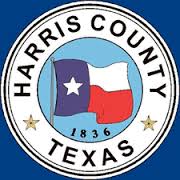An excellent use of CARES money.
Harris County commissioners on Tuesday voted to spend up to $32 million in federal COVID-19 funds on providing hundreds of thousands of WiFi hotspots and devices to children in school districts across the county.
The funds, provided through the Coronavirus Aid, Relief, and Economic Security, or CARES Act, will go toward the purchase of more than 200,000 devices, such as Chromebook laptops, and more than 80,000 WiFi hotspots. The county is partnering with the Texas Education Agency and T-Mobile as part of the initiative.
Commissioners stressed that the programs are targeted at low-income students, many of whom attend schools that could hold classes remotely during the fall due to the pandemic. Gov. Greg Abbott recently said public health authorities could not block schools within their jurisdictions from reopening, though he allowed for certain measures delaying the start of in-person instruction.
Commissioner Rodney Ellis cited a recent study that found about a quarter of Texas students lack the devices needed for at-home instruction, while about a third lack adequate internet access. Among the latter group, two-thirds are Black, Latino or Native American, the study found.
Honestly, this is the sort of thing that should have been done long ago, with the state providing the funds to every school district to ensure that all students everywhere could get online when they needed to. In the absence of that, this will have to do. Good job, Commissioners. A press release about this, with some extra details, from Commissioner Garcia is beneath the fold.
TODAY, Commissioners Court approved by a unanimous vote a pair of programs aiming to end the digital divide in Harris County. The $32 million combined programs will provide more than 120,000 mobile hot spots (with unlimited data plans) and more than 250,000 devices (such as IPads, laptops, and Chromebooks) for students to have no gap in their education during the pandemic and for the remainder of the school year.
According to a 2020 Pew Research Study, “Roughly one-third (35%) of households with children ages 6 to 17 and an annual income below $30,000 a year do not have a high-speed internet connection at home, compared with just 6% of such households earning $75,000 or more a year. These broadband gaps are particularly pronounced in black and Hispanic households with school-age children – especially those with low incomes.
The programs approved by Court today will go a long way toward ending the above-mentioned digital divide within Harris County.
These combined connectivity programs, which use CARES Act Funds allocated by the Federal Government, aims to ensure that disadvantaged students who are starting the school year with virtual learning won’t fall behind because of a lack of connected devices or access to the internet. A dollar-for-dollar match from the Texas Education Agency is also part of the funding for the program.
“On one hand, I am thrilled we are offering help to families with the goal of flattening the education access curve. However, it pains me that it took a pandemic to close the gap between kids with reliable access to the internet at home and those that, in some cases are having to use mom or dad’s smart phone to do their homework, if such a device is even available in the home. This is a great example of what we can accomplish when the state of Texas and local counties work together to help people in need. My hope is that we see more of this happen in the future,” said Commissioner Garcia.
Once purchased, the devices and hot spots will become permanent property of the School Districts. Districts will also be responsible for distribution to only students who do not have a previously issued device from the district. Upon delivery in 4-12 weeks, School Districts own the devices and will be responsible for setting parameters for when they must be returned. In addition, the devices will feature filtering guidelines to prevent inappropriate content from reaching kids.
Other partners in the program include T-Mobile, AT&T, and Verizon so the provider with the best coverage in the area can be chosen.


How flippin’ old do you have to be to fail to grok that a pad or laptop and reliable broadband are effectively the same thing as all those books we used to have to lug around? I don’t know where to look to run the numbers, but I’m willing to bet that a basic device prices out within spitting distance of the set of dead trees versions.
I hope hat the filtering will not only prevent kids from searching for pornographic and violent content, but also from the misinformation and bullying on social media, and, most importantly, from the predators and scammers who target kids online.
I hope that Jason Hochman crawls back underneath the rock he came from, so is hope.
Jason, as long as they block @RealDonaldTrump on the Tweeter, they can avoid the whole bullying thing. Great idea ! You should pen another later to your Mayor and suggest same.
Pingback: HISD also spending more money on mobile technology – Off the Kuff